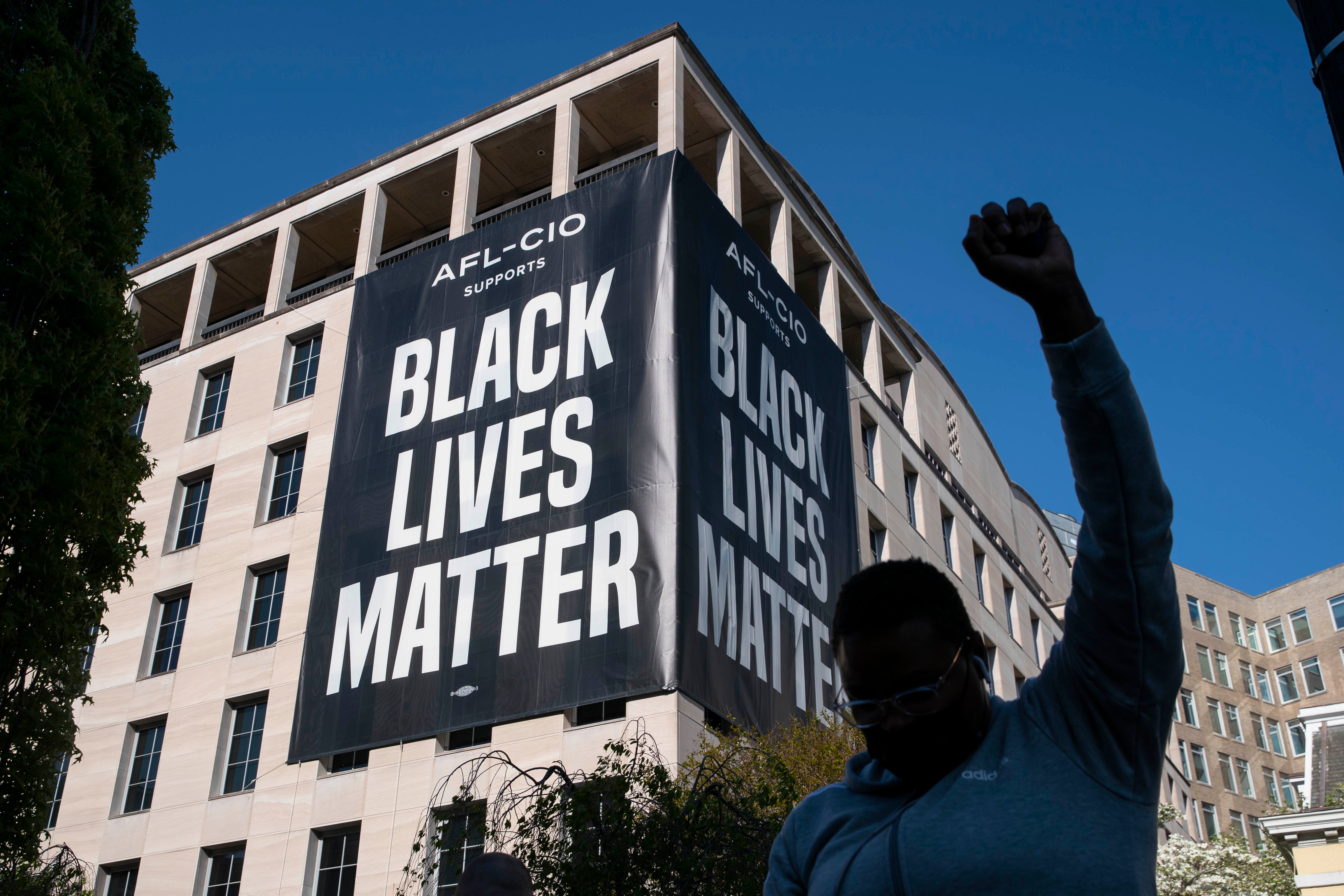George Floyd’s murder and the Black Lives Matter protests sparked a conversation that is far from over
Because of the growth of racism internationally, it is difficult to see how BLM can now be brushed aside or ignored


Your support helps us to tell the story
From reproductive rights to climate change to Big Tech, The Independent is on the ground when the story is developing. Whether it's investigating the financials of Elon Musk's pro-Trump PAC or producing our latest documentary, 'The A Word', which shines a light on the American women fighting for reproductive rights, we know how important it is to parse out the facts from the messaging.
At such a critical moment in US history, we need reporters on the ground. Your donation allows us to keep sending journalists to speak to both sides of the story.
The Independent is trusted by Americans across the entire political spectrum. And unlike many other quality news outlets, we choose not to lock Americans out of our reporting and analysis with paywalls. We believe quality journalism should be available to everyone, paid for by those who can afford it.
Your support makes all the difference.The images of George Floyd being murdered by a police officer went all around the world. They were the spark for the Black Lives Matter movement, which became a global movement for racial justice and equality. It has already scored impressive victories. Because of the growth of racism internationally, it is difficult to see how it can now be brushed aside or ignored. There are strong reasons to believe it will endure.
George Floyd is not the first unarmed Black man to be murdered on US streets. He is not even the first to be murdered in broad daylight, while onlookers filmed the crime. Last year, more than 1,000 US citizens were killed by police officers, and Black and Latino people accounted for over 400 of the total killed, a huge disproportion to their share of the population. But, because of the BLM movement, Floyd’s killer became that extreme rarity: a cop who was convicted of an obvious murder.
BLM’s strength is partly to do with how it came into being. It is important to understand that the movement emerged against a backdrop of the economic crisis in the US. A crisis that has never really ended since the financial crash of 2007 onwards, which particularly affected the poor. These issues were very much present in areas such as Ferguson, the scene of earlier protests after another Black man, Michael Brown, was killed by a cop. But this one walked free.
The protests in Ferguson were not just about routine police brutality directed against a mainly Black population and the militarisation of the police. It was also about the issue of economic injustice such as: the system of fines used to fund the city budget; the use of debtors’ prisons; private-profit policing and jails and segregated schools.
Because in the US, racism is big business. Not for nothing do people talk about the prison industrial complex. Privatised jails alone make billions of dollars in revenues. Trump’s response to the pandemic, meanwhile, caused huge job lay-offs and cuts to incomes. Again, the poor bore the brunt. So the spark of the George Floyd murder led to an eruption of broad-based protest, which found a ready audience across wide layers of society.
The Black Lives Matter movement has been an object lesson in how to build a successful movement. The first principle is that those suffering the oppression must be allowed to lead the fight against it. This is the case with women in the struggle for liberation or with workers fighting for rights. It is vital that the movement against racism and for Black liberation must be led by Black people.
But that immediately leads to the second principle: the movement must have clear aims and try to unite everyone who shares those aims in practice. It was a truly wonderful sight in the protests in Portland to see women of all colours arriving in numbers to form a “Wall of Moms” to shield the BLM protesters and they in turn were protected by army veterans who formed a “Wall of Vets”.
Portland’s protests were a very practical expression of how you build a movement, adding new layers of society along the way. It is not always well understood in this country how broad this Black Lives Matter movement is. An estimated 26 million people took part in at least one of the mobilisations, making it one of the largest in US history. This is comparable in scope to the 1960s civil rights movement or the mobilisation for women’s equality or the Vietnam war protests.
Almost every city, town and village in the US staged a Black Lives Matter demonstration at some point, while it is estimated that solidarity protests took place in at least 60 other countries.
Even less well understood is that Black Lives Matter was key in forcing Trump out of office in the US presidential elections. A New York Times exit poll showed huge support for BLM. Overwhelmingly, Democrat voters placed racial inequality as a key reason for their vote. Remarkably, not only was there huge support for BLM among Democrat voters, but even among a sizable minority of Trump voters.
Many key activists in the movement were directly involved in the voter registration efforts, and some were even elected to office. For instance, it is unlikely the key swing state of Georgia would have been won without them.
We should also consider how much the sharp turn in US economic policy is due to the strength of BLM. Joe Biden has never previously been known as an economic radical, but his additions to the smaller Trump household bailouts are vastly greater than anything seen under previous presidents in the modern era. This is a clear attempt to end the decline into poverty for most ordinary Americans that provided the fertile ground for the widespread support for BLM.
Black Lives Matter has had a huge impact, not just in the US, but internationally. The underlying causes were not just the vivid images of George Floyd, but also systemic social and economic injustice. For as long as these issues remain, the struggle will continue.
Diane Abbott is MP for Hackney North and Stoke Newington
Join our commenting forum
Join thought-provoking conversations, follow other Independent readers and see their replies
Comments